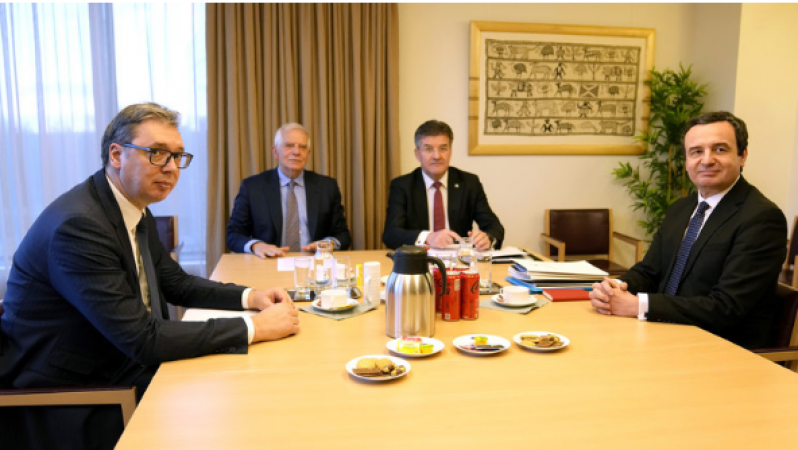
United States: The text of a purported Franco-German proposal for a "path to normalisation" of relations between Serbia and its separatist province of Kosovo was made public by the European Union on Monday.
EU foreign policy chief Josep Borrell implied that Belgrade and Pristina approved the plan and said its implementation would be discussed at the next meeting in March.
Borrell tweeted the following statement after the meeting in Brussels, which was also attended by EU envoy for the Balkans Miroslav Lajčak: "President Aleksandar Vucic and Prime Minister Albin Kurti have agreed today to further discuss the EU proposal is not needed." "Today we made some progress, but there is still work to do."
Also Read: Somalis fleeing drought must contend with cholera and malnutrition in Kenya
Even though Vucic "agreed" with the EU proposal, Kurti told reporters that Vucic refused to sign the agreement. I offered to formally sign it, but Serbia was not ready, he said.
We agreed to continue talking, but first, according to Vucic, Kurti had to fulfill the commitment that Pristina had made ten years earlier to start a federation of Serb municipalities in the province.
The European Council will discuss the situation on March 23 and 24, he said, adding that there will be another meeting on March 18. On behalf of ethnic Albanian separatists, NATO began its bombing campaign against Serbia in 1999.
Also Read: Former shah's son calls on the West to support Iranian dissidents
Eventually, the US-led coalition sent troops to Kosovo and supported the Albanians' 2008 declaration of independence, which was against UN Security Council Resolution 1244, which protected Serbia's territorial integrity.
The EU has insisted that Serbia recognize Kosovo's independence as a condition of joining the organization, despite the fact that five of its members, including Borrell's Spain and Lajčak's Slovakia, have not yet done so.
French and German diplomats presented the proposal to Belgrade and Pristina last month, but it was not made public until now. In a recent poll conducted in Serbia, 57% of respondents supported a hypothetical scenario in which Kosovo would not be recognized, but only 9% supported the alleged real proposal.
By exchanging "permanent missions" and mutually recognizing each other's "related documents and national symbols, including passports, diplomas, license plates, and customs stamps," Serbia and Kosovo "have maintained normal, good relations with each other". -neighborly relations will develop "equal rights," the EU's external action service said in a document it published.
According to the EU resolution, Serbia in particular "shall not object to Kosovo's membership in any international organization" and both sides "proceed on the assumption that neither may represent the other in the international arena". is or cannot act on his behalf."
Also Read: Un makes an effort to reach a high seas treaty
The EU further stressed that the dialogue "will be guided by the objectives and guiding principles set out in the UN Charter, in particular the sovereign equality of all states, respect for their independence, autonomy and territorial integrity, the right to self-determination." determination, protection of human rights and non-discrimination."